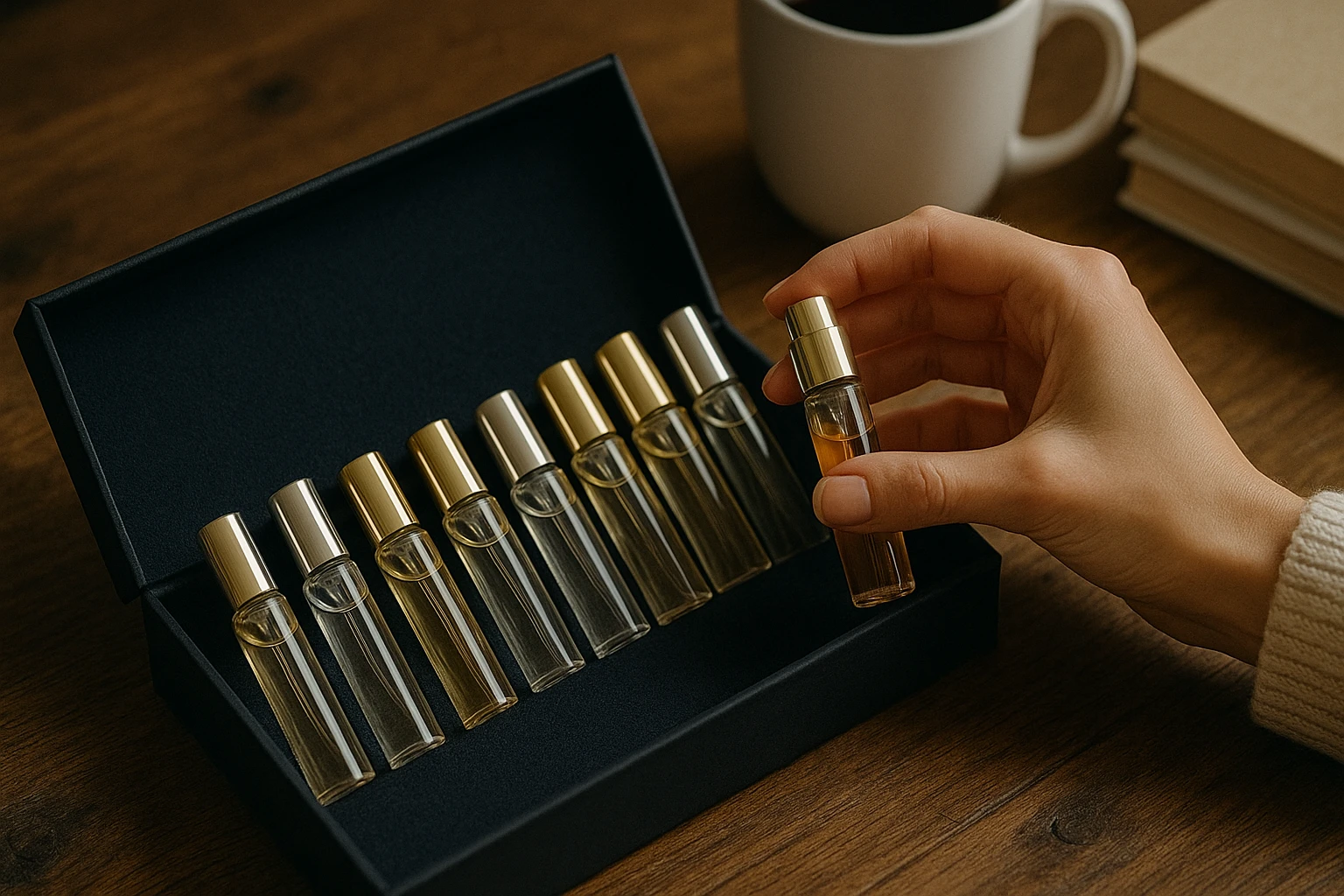
The Unseen Impact of Fragrance
First impressions are formed in seconds, long before words are spoken. While appearance and body language play obvious roles, scent quietly influences perception in ways most people don’t even notice. Perfume has the power to shape how others view you—whether as confident, approachable, mysterious, or even untrustworthy. This subtle influence is why fragrance is often described as a hidden social tool.
Perfume doesn’t just make you smell pleasant; it creates a sensory halo that tells a story. The fragrance you choose becomes part of the atmosphere around you, weaving into the memory of anyone you meet. And with the rise of the perfume subscription model, people are experimenting with scents more than ever, tailoring impressions to different settings.
How Scents Influence Perception
Smell is closely linked to the brain’s limbic system, the area that governs emotions and memories. When people encounter a scent, they don’t process it logically—they feel it. This immediate connection can spark comfort, attraction, or even curiosity.
For instance:
- Citrus perfumes suggest energy and freshness, often linked to positivity.
- Woody fragrances communicate reliability, depth, and stability.
- Floral notes evoke romance and elegance.
- Spicy scents imply boldness and charisma.
The perfume you wear doesn’t just describe your personality—it actively shapes how others interpret you.
First Impressions in Different Contexts
Professional Settings
In the workplace, a clean and subtle fragrance can make you seem more polished and competent. Overpowering scents, however, risk creating the opposite effect. A crisp, fresh perfume suggests organization and attention to detail—qualities that colleagues and clients notice.
Social Encounters
For dates or social gatherings, warmer scents like vanilla, amber, or soft florals create a welcoming aura. These notes are associated with intimacy and comfort, which help form stronger bonds from the first meeting.
Everyday Life
Even casual encounters—like meeting a friend’s family or attending community events—are shaped by fragrance. A light, refreshing perfume makes you seem approachable, while deeper notes can leave an impression of sophistication.
The Role of Memory in Attraction
One of the strongest ways perfume shapes impressions is through memory. A single whiff can anchor someone’s memory of you, making your presence unforgettable. Scents are stored alongside emotions, meaning people often associate how they felt with the fragrance they experienced.
If your perfume makes someone feel comfortable or intrigued, that memory sticks. Over time, your scent becomes part of your identity in their mind, influencing how they think of you every time they encounter it again.
Confidence as the Foundation
Beyond how others perceive you, perfume plays a role in self-perception. When you feel good about the way you smell, you project more confidence. This confidence—your posture, tone, and energy—greatly enhances first impressions.
Wearing the right scent is like putting on invisible armor. It helps you stand taller, approach people more openly, and present yourself with assurance. Confidence is attractive, and perfume is a simple way to reinforce it.
Choosing the Right Perfume for the Right Moment
Fragrance should align with context. Wearing the wrong perfume can disrupt the impression you want to create.
- Work Meetings: Fresh and understated notes work best.
- Dates: Warm, sensual blends leave a stronger emotional mark.
- Networking Events: Balanced, approachable scents make you more memorable without overwhelming.
- Casual Outings: Light and fun perfumes project ease and friendliness.
By matching scent to occasion, you’re not just wearing perfume—you’re using it strategically to control how people perceive you.
Exploring Scents Through Subscriptions
Traditionally, buying perfume meant committing to one or two bottles for months. But impressions aren’t one-size-fits-all, and neither are fragrances. A perfume subscription allows you to explore different scents regularly, adapting your fragrance to different environments and moods.
This flexibility reflects modern identity—fluid, versatile, and situation-specific. Just as people change outfits depending on the occasion, they now change perfumes to match the impression they want to leave behind.
The Science Behind Attraction and Scent
Studies show that certain notes—like vanilla, sandalwood, or lavender—are universally linked to positive emotional responses. Others, like musk or patchouli, spark intrigue and sensuality. By understanding these psychological triggers, you can select perfumes that subtly enhance how others respond to you.
Perfume doesn’t guarantee attraction, but it creates conditions for it. When paired with confidence and presence, fragrance becomes an undeniable enhancer of first impressions.
Building a Personal Scent Strategy
Treat perfume as part of your personal presentation. The same way you curate clothes or grooming habits, scent deserves intention. Consider:
- Seasonal rotation: Fresh notes in warm months, deeper scents in cooler weather.
- Day-to-night shifts: Light perfumes for day, richer blends for evening.
- Signature layering: Combining two perfumes to create a unique identity.
With planning, fragrance becomes more than an accessory—it becomes part of your personal strategy for making memorable connections.
The Invisible Signature You Leave Behind
Perfume may be invisible, but its effects are lasting. Whether through attraction, memory, or the subtle psychology of scent, it shapes the way people perceive you long after the first meeting. Your fragrance isn’t just about smelling good—it’s about creating an impression that lingers.
The power of perfume lies in its ability to communicate without words. With every note, you’re sending signals that influence perception, confidence, and connection. When chosen carefully, perfume transforms from a simple spray into a defining feature of who you are.

